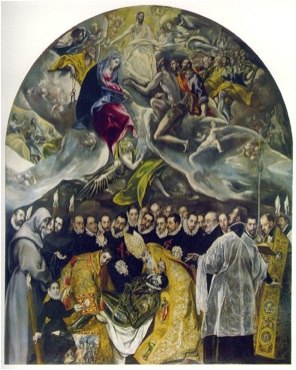
I recently wrote about the eeriness of the American Mullahs, that club of practically identical – in dress, age, gender and ethnicity — senators panicking about Judge Sotomayor. When you consider these distinguished whiners, the historical composition of the Supreme Court (two non whites and two women out of some one hundred justices), how close we were to a path of Bush, Clinton, Bush, Clinton, how there are still more Bush’s out there, and how Liz Cheney gets airtime, then its begs the question as to whether the U.S. is in fact a meritocracy.
In commenting on how W. Bush’s daughter, Jenna Hager, got her new gig as a Today reporter, Glenn Greenwald makes the following excellent points:
They should convene a panel for the next Meet the Press with Jenna Bush Hager, Luke Russert, Liz Cheney, Megan McCain and Jonah Goldberg, and they should have Chris Wallace moderate it. They can all bash affirmative action and talk about how vitally important it is that the U.S. remain a Great Meritocracy because it’s really unfair for anything other than merit to determine position and employment. They can interview Lisa Murkowski, Evan Bayh, Jeb Bush, Bob Casey, Mark Pryor, Jay Rockefeller, Dan Lipinksi, and Harold Ford, Jr. about personal responsibility and the virtues of self-sufficiency. Bill Kristol, Tucker Carlson and John Podhoretz can provide moving commentary on how America is so special because all that matters is merit, not who you know or where you come from. There’s a virtually endless list of politically well-placed guests equally qualified to talk on such matters.
. . . Just to underscore a very important, related point: all of the above-listed people are examples of America’s Great Meritocracy, having achieved what they have solely on the basis of their talent, skill and hard work — The American Way. By contrast, Sonia Sotomayor — who grew up in a Puerto Rican family in Bronx housing projects; whose father had a third-grade education, did not speak English and died when she was 9; whose mother worked as a telephone operator and a nurse; and who then became valedictorian of her high school, summa cum laude at Princeton, a graduate of Yale Law School, and ultimately a Supreme Court Justice — is someone who had a whole litany of unfair advantages handed to her and is the poster child for un-American, merit-less advancement.
Losing another Kennedy is like peeing in the ocean; we still have a sea of American aristocrats to fill the void. What are we left with? The worst of Europe without any of the health benefits or modern infrastructure.








